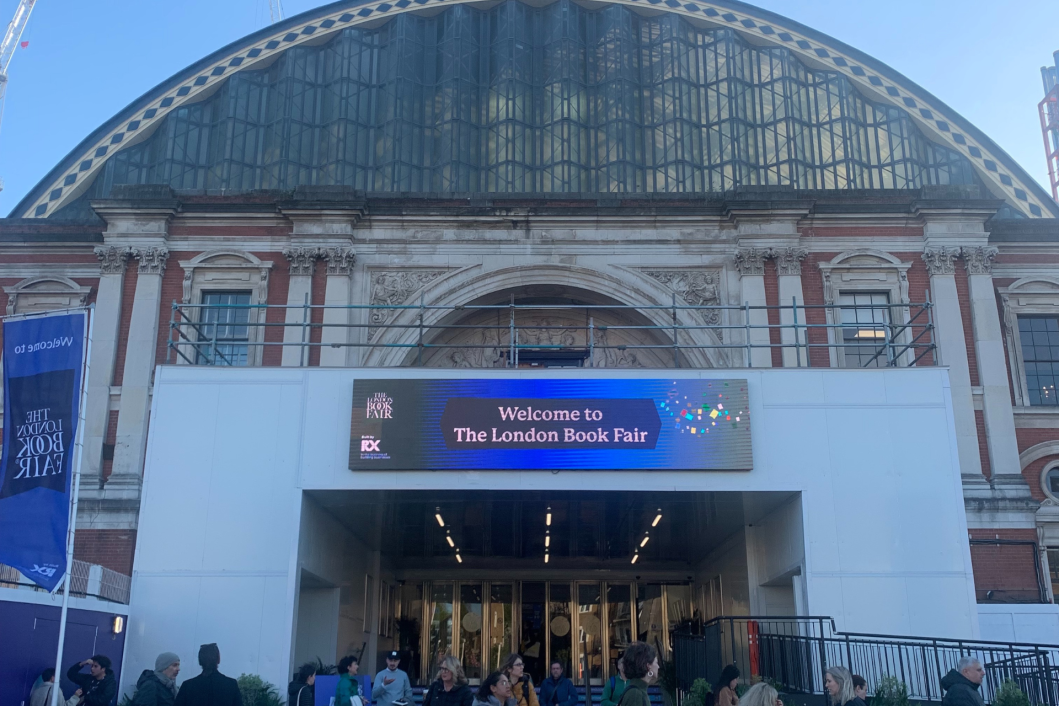The IAF attended the London Book Fair, one of the most significant creative industry fairs, where authors, publishers, and other representatives of this community gather to talk and learn about the latest developments in the sector.
IAF attended a number of seminars focusing on copyright, the impact of artificial intelligence (AI) on international copyright law, the challenges of regional development in the publishing industry, and authors’ earning rights.
The “Charles Clark Memorial Lecture” and the talk “Copyright in a Global Context: Current Threats and Emerging Issues” both covered AI, which has been identified as the biggest threat to copyright law globally. It has been stated that the development of AI models such as ChatGPT, LLamA, and Dolly is outpacing the ability of policymakers and institutions to keep up.
-Dr Andres Guadamuz, Reader in Intellectual Property (IP) at the University of Sussex, showed how countries are varying their approach to answer to the question of whether AI generated works are eligible for copyright protection. Dr Anders noted that there is a need to settle the matter of authorship for AI work because we must find ways to protect authors, both in terms of their current works’ rights and the competition they could encounter from technology.
-He stated that authors should be the most concerned group looking at the development of AI, in particular visual artists who are already feeling pressure on their work. Dr Anders also pointed out that AI training will most likely be the first major issue to be challenged, where authors’ works have been copied, but the nature of the copying and whether it is protected by exceptions would be decided in the court room. The panellist then addressed the output aspect of AI, stating that it is still unclear whether the works generated by an AI effectively infringe the copyright of the work they were trained. The issue is whether the work is derivative of its inputs, and this could depend on how much can be identified from the original works used.
Also discussed at the fair was the development of the African publishing industry, including its successes and challenges. During the talk “The journey of the African publishing”, Dr Bibi Yusuf Bakare from Cassava Republic Press pointed out that great progress has been made in the African publishing business, as publishing companies from many African countries are beginning to collaborate. This is a very important development for the African publishing industry which has always strongly relied on Europe as mediator.
-However, due to the instability of the African economy, producing books is still expensive, and the problem of making books accessible to people is now a growing concern. Panellists, on the other hand, addressed the emergence of technology as a tool for producing material in the African publishing sector: while 95% of all books are textbooks, there has been a growth in the creation of platforms for sharing information, making it more accessible to the people.
IAF also attended to the launch of the “Indie author income survey”, the world’s first independent, international survey of the incomes of self-published (“indie”) authors writing in English, commissioned by the Alliance of Independent Authors (ALLi). Dr Melissa Addey, the campaign manager of ALLi, underlined in her presentation that, despite several studies showing a decline in authors’ earnings, this survey finally delivered some good news. She pointed out that income for indie authors has increased (the median revenue for independent authors in 2022 was US$12,749), with a considerable and rapid growth (53%) compared to the previous year. The survey also shows that the community of indie authors is increasing in United Kingdom, United States and Australia. Dr Melissa concluded that indie authors appear to be in a great position to make a living from their works.




